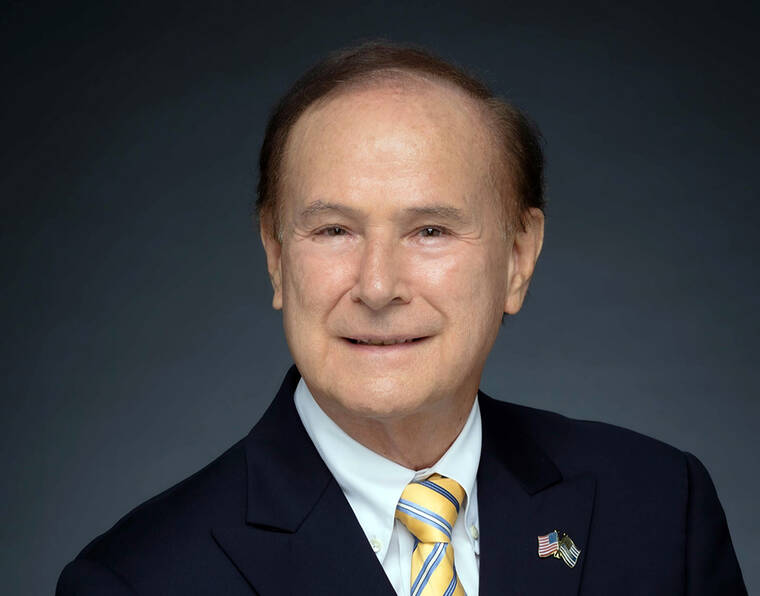Hawaii’s class of 2021 gets targeted help with ‘Next Steps to Your Future’

COURTESY TAYJA ABANTO
Kapiolani Community College student Tayja Abanto says a “Next Steps” career exploration course last summer helped prepare her for college life. The free program is now being offered to class of 2021 graduates from Hawaii’s public schools.
A program to help public school graduates make a smooth transition to college and careers showed remarkable results last year and is now open to the class of 2021.
Participants in “Next Steps to Your Future” enrolled in college at much higher rates than their peers last fall, a time when college-going rates were slumping across the country with the spread of the coronavirus.
“We are worried about the class of 2021 as much as the class of 2020,” said Stephen Schatz, executive director of Hawaii P-20 Partnerships for Education. “The effect of the pandemic was even more dramatic for the seniors who are graduating this year.”
“And for that reason we really want to make sure we are providing transition services for all students in the form of counseling and free community college classes so they can pursue their next steps,” he said Friday in an interview.
Next Steps’ goal is to help public school graduates move on toward careers, whether they are aiming for college, skilled trades, the military or other jobs. Launched last summer, the initiative is a joint project of Hawaii P-20, the University of Hawaii community colleges and philanthropic partners.
The program offers one-on-one support from a personal adviser to any public school 2021 graduate, for eight weeks starting in June. Dedicated counselors will connect with graduates via text, virtual meetings or phone calls, aiming to help them reach their goals. Webinars topics include “balancing life and managing stress” and “managing your money.”
Don't miss out on what's happening!
Stay in touch with breaking news, as it happens, conveniently in your email inbox. It's FREE!
A second component of the program is free career exploration courses offered online at University of Hawaii community colleges over the summer, based on students’ career interests. Next Step participants may also be eligible for scholarships to attend a UH campus this fall.
“From our perspective this is a great program for folks who are either community-college bound or are not really sure what their next step is going to be,” Schatz said, as opposed to students already well along the path to a four-year university.
Participants may choose either the advising or the career exploration classes or both.
About 2,100 students in the class of 2020 signed up for Next Steps last summer, and data shows a dramatic difference in outcomes for them. Altogether, 77.5% of Next Step participants enrolled in college, compared with 44.3% of graduates who did not take part in the program.
The differential was even bigger for economically disadvantaged students, with twice as many heading straight to college if they joined Next Steps: 69.5% versus 32.5%.
College is defined broadly to include two-year institutions, four-year institutions and trade and technical schools throughout the United States.
Tayja Abanto, who graduated from Radford High School last spring, signed up for a career exploration class through Next Steps at Kapiolani Community College last summer. She had already planned to attend KCC but appreciates the head start it gave her.
“That class actually helped give me an insight about what college can be like and how I should prepare for it,” she said. “I learned some skills I could use throughout college as well as study tips.”
“It showed how I could manage my time and set my schedules,” she said. “It showed me many different things that could help me have a successful college life and experience.”
Abanto is aiming for a career in early or elementary education, and plans to get her associate’s degree at KCC before completing a bachelor’s degree, possibly at Pacific University in Oregon. She and her three siblings are the first generation in their family to attend college.
Abanto recommends Next Steps for the upcoming class of public school graduates.
“Given that they didn’t really have a school year because of the pandemic, this class will definitely help with just kind of easing back into a groove,” she said.
Next Steps aims to reach twice as many students this year, or roughly 4,000 participants. That would represent more than a third of the public schools’ graduating class, which typically is about 11,000 students.
On average, taken all together, about 50% of the class of 2020 in Hawaii’s public schools went straight to college in 2020, down from 55% in 2019.
Seniors in the class of 2021 in Hawaii’s public schools may sign up for free summer advising at nextsteps.hawaii.edu or by texting “nextsteps” to 437-2719. To sign up for free career explorations classes at UH community colleges, visit nextsteps.hawaii.edu. The application deadline is May 30.
Funding for this year’s Next Steps program comes from the Harold K.L. Castle Foundation, the Stupski Foundation, GEAR UP Hawaii and federal CARES Act funding awarded to the University of Hawaii. Next Steps scholarships are funded with help from the Chenter Foundation, UH Alumni Association and other UH Foundation donors.
Next Steps
Public high school graduates in the class of 2021 can get a jump start on college and careers through the “Next Steps to Your Future” program:
>> Sign up for free summer advising at nextsteps.hawaii.edu or to texting “nextsteps” to 437-2719.
>> Sign up for a free career exploration class at a UH community college by visiting nextsteps.hawaii.edu Opens in a new tab.




